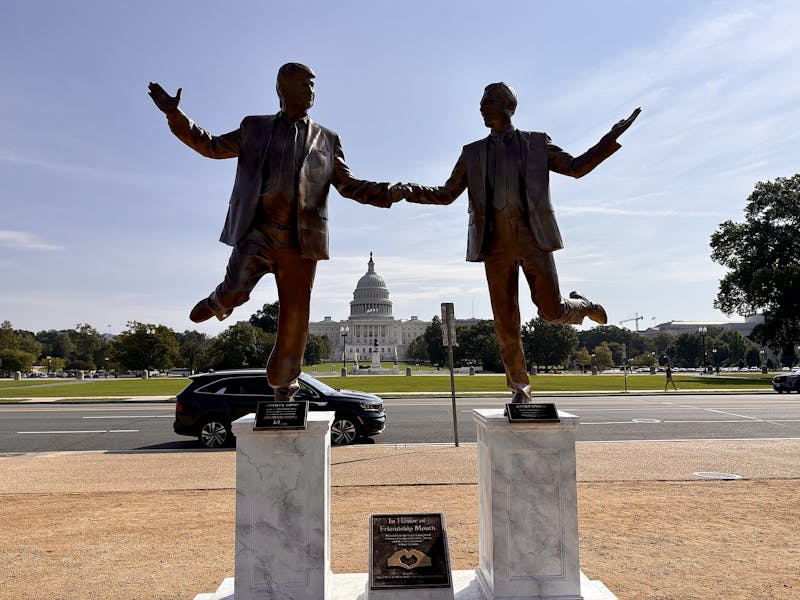In 2012, a monument of the Ten Commandments was erected on the grounds of the Oklahoma capitol building. Even after much controversy, it stood solid in its place for three years until it was finally declared unconstitutional by the Supreme Court, as it was a religious monument being displayed on government property.
In the dark of the night on Oct. 6, a construction crew uprooted the monument and placed it in the hands of the Oklahoma Council of Public Affairs, which now displays it on private property.
There was an outbreak of outrage from the Christian community over the matter. To them, taking down the monument means the government is preventing them from expressing their faith and is persecuting their religion.
Actually, this is not the case at all.
As we know, our government was created on the grounds that no religion should have priority over another. Favoritism can cause one religion’s doctrines to be held in higher esteem over another in law, which is clearly unfair for citizens.
There are some who argue the Ten Commandments positioned on government property does not necessarily mean that the state government is favoring that particular religion.
I would reply by suggesting we erect a 10-foot tall passage from the Quran on government property and seeing if they still hold the same opinion.
Others say that there is no problem in erecting a monument if it is open for other religions to place their own symbols on the property as well. There would not be favoritism if everyone could do it, right?
Some religious groups saw it this way, including a Satanist church from New York that wanted to place a 7-foot statue of Satan depicted as Baphomet on the property. The Church of the Flying Spaghetti Monster wished to have representation too, as well as a Hindu individual and an animal rights group.
For some strange reason, none of these faiths were given as much consideration for their requests as the Ten Commandments monument. I guess the state legislators did not feel they were as important as Christianity.
Now, the monument resides on private property, which some Christians feel is unfair. What they need to realize, however, is that the law prohibiting their Ten Commandments on the front lawn of the Oklahoma capitol building actually protects their religious rights.
In a different situation, for example, we may have seen the Church of the Flying Spaghetti Monster’s monument on the front lawn of the capitol building instead of the Ten Commandments. It would make the state of Oklahoma seem like it preferred the Church of the Flying Spaghetti Monster over Christianity, Islam, Hinduism, satanism, atheism and all other “isms.”
Fundamentalists certainly would not find this fair, which means it is not fair for their religious monument of the Ten Commandments to be displayed the same way either.
The law conservative Oklahoma legislators wish to abolish is, in fact, protecting their freedom as well as everyone else’s freedom in the nation. It prevents the government from expressing favoritism that might make other religions second- rate, including Christianity.
The problem is therefore solved by simply having the Ten Commandments monument on private property just a few blocks away from the capitol. Christians can feel safe expressing their faith without persecution while simultaneously knowing that no other religion is given special permission over theirs. The same is then true for all other faiths as well.
No nation may ever find complete religious equality within its borders, but enforcing laws that prevent favoritism is definitely a start.




The Slate welcomes thoughtful discussion on all of our stories, but please keep comments civil and on-topic. Read our full guidelines here.